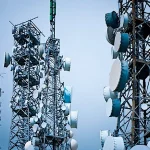5G Networks May Interfere With Aircraft Landing, IATA Warns Nigeria, Others
The International Air Transport Association has advised the Federal Government of Nigeria and the governments of other countries to collaborate with the aviation industry to ensure that aviation...

The International Air Transport Association has advised the Federal Government of Nigeria and the governments of other countries to collaborate with the aviation industry to ensure that aviation safety systems can safely co-exist with new 5G services.
The organization spoke due to the disruption of flights caused by the deployment of 5G services by telecommunication companies in the United States and plans by Nigeria and other countries to deploy 5G services in the coming months.
The IATA supports the economic importance of making spectrum available to support next generation commercial wireless telecommunications, it also maintained that ensuring the safety of passengers, flight crews, and aircraft must be a top priority for governments.
The call came as the global airline industry met in Doha, Qatar for its 78th IATA Annual General Meeting.
A statement by IATA, the Geneva-based body representing over 290 international airlines in over 120 countries, quoted its Director-General, Willie Walsh, as saying, “We must not repeat the recent experience in the United States, where the rollout of C-band spectrum 5G services created enormous disruption to aviation, owing to the potential risk of interference with radio altimeters that are critical to aircraft landing and safety systems. In fact, many countries have successfully managed to facilitate the requirements of 5G service providers, while including necessary mitigations to preserve aviation safety and uninterrupted services. These include, for example, Brazil, Canada, France and Thailand.”
He added, ‘”Before deciding on any spectrum allocations or conducting spectrum auctions, IATA called for governments to ensure close coordination and mutual understandings between national spectrum and aviation safety regulators so that each frequency allocation/assignment is comprehensively studied and is proven not to adversely impact aviation safety and efficiency.”
According to the IATA, extensive testing carried out with subject matter experts was necessary to put the right safety procedures in place.
It said measures that had already been used by some governments include ensuring thorough testing, sufficient spectrum separation between 5G C-band deployments and 4.2-4.4 GHz frequency band used by existing radio altimeters.
It listed others as clearly codifying and enforcing the maximum power limit for 5G C-band transmission and downward tilting of 5G antennae particularly in the vicinity of flightpaths; and establishment of sufficient 5G C-band prohibition and precautionary zones around airports.
The statement added, “IATA noted that airlines operating to/from and within the US continue to contend with the effects of the rollout of 5G, including a pending airworthiness directive from the Federal Aviation Administration requiring them to retrofit/upgrade radio altimeters at their own expense to enable the respective aircraft to continue to utilize CAT II and CAT III low-visibility approaches at many US airports where 5G C-Band service is currently or will be deployed in future. The timely availability of upgraded altimeters is a concern, as are the cost of these investments and the lack of certainty regarding the future spectrum environment. Furthermore, 19 additional telecommunications companies are scheduled to deploy 5G networks by December 2023.”
The International Civil Aviation Organization and the International Telecommunications Union have both appealed to their member states on the need to ensure that existing aviation systems and services are free from harmful interference.
“This will become even more critical as more and more spectrum is being allocated to new generation telecommunications services,” IATA added.
In light of the plan by plan by MTN and Mafab to deploy 5G services in Nigeria, a former Managing Director, Aero Contractors, Captain Ado Sanusi, has said that telecoms in Nigeria must work with the Nigerian Civil Aviation Authority to ensure that the rollout of 5G services in the country is safe for all.









No Comment! Be the first one.